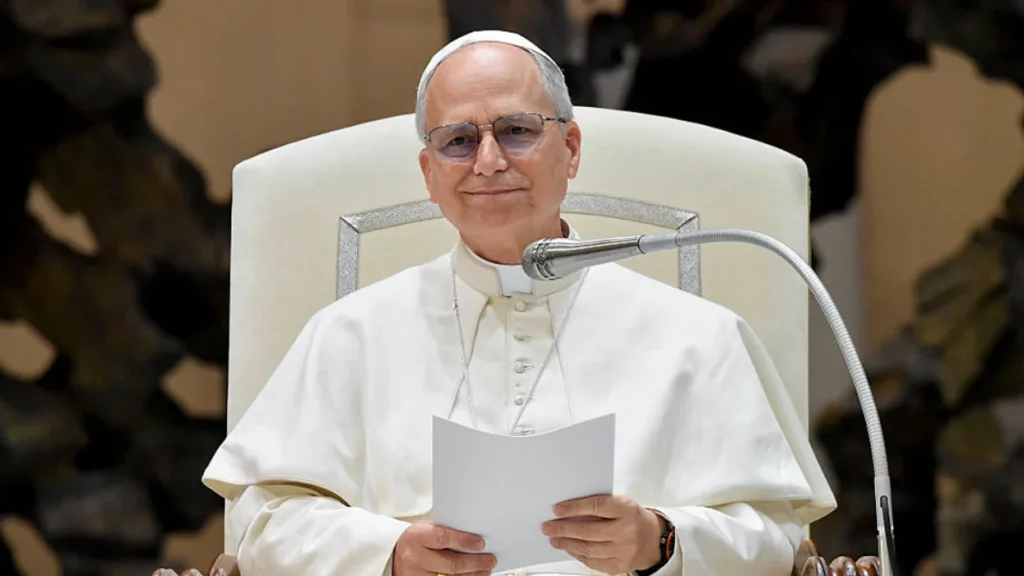The tragic helicopter crash in Ghana on August 6, 2014, which claimed the lives of eight prominent individuals, including government ministers and military personnel, sent shockwaves throughout the nation and elicited expressions of grief and condolence from around the world, including a heartfelt message from Pope Leo XIV. The Holy Father, deeply saddened by the loss of life, conveyed his sympathies through a telegram signed by Cardinal Pietro Parolin, the Secretary of State, and addressed to Bishop Matthew K. Gyamfi, President of the Ghana Catholic Bishops’ Conference. The Pope’s message offered prayers for the deceased, commending their souls to God’s mercy, and extended his spiritual closeness to the grieving nation, particularly the families of the victims. The accident served as a stark reminder of the fragility of life and the profound impact such sudden losses have on families, communities, and nations.
The helicopter crash, which occurred in a densely forested area of the Adansi Akrofuom District in the Ashanti Region, resulted in the deaths of all eight individuals on board. The manifest included high-ranking government officials such as Dr. Edward Omane Boamah, the Minister of Defence, and Ibrahim Murtala Muhammed, the Minister for Environment, Science, Technology, and Innovation. Also among the victims were Muniru Mohammed, the Acting Deputy National Security Coordinator; Samuel Aboagye, a former parliamentary candidate; and Samuel Sarpong, NDC Vice Chairman. The dedicated crew members who perished in the crash were Squadron Leader Peter Bafemi Anala, Flying Officer Manin Twum-Ampadu, and Sergeant Ernest Addo Mensah. Their collective loss represented a significant blow to Ghana’s leadership and governance.
The purpose of the ill-fated flight was an official mission to Obuasi, where the officials planned to address the issue of illegal mining. This underscores the dedication and commitment of these individuals to tackling critical challenges facing the nation. The helicopter tragically lost contact with air traffic control before crashing, leaving no survivors. The sudden and unexpected nature of the incident amplified the sense of shock and grief that enveloped the nation. The loss of these individuals, who were actively engaged in serving their country, highlighted the risks and sacrifices often associated with public service.
The Ghana Catholic Bishops’ Conference, in response to the tragedy, issued a statement expressing profound sorrow and extending condolences to President John Dramani Mahama, Parliament, the families of the victims, and the entire nation. The bishops acknowledged the shock of losing such accomplished individuals simultaneously, emphasizing the significant contributions they had made to Ghanaian society. They described the deceased as dedicated public servants, politicians, technocrats, and military officers who had devoted their lives to the service of their country and its people. The bishops’ statement reflected the widespread mourning and national sense of loss following the devastating crash. Their call for prayers for the deceased resonated with the nation’s collective grief.
The bishops’ statement further highlighted the profound impact of the loss, not only on the families and friends of the victims but also on the nation as a whole. The deceased were recognized as individuals of proven commitment who had dedicated their lives to serving Ghana. Their untimely deaths represented a significant setback for the country, depriving it of valuable leadership, expertise, and dedication. The bishops’ words captured the sense of collective mourning and national loss, emphasizing the void left by these individuals. They served as a poignant reminder of the important role these individuals played in shaping the nation’s future.
President Mahama declared three days of national mourning as a mark of respect for the victims and to provide an opportunity for the nation to grieve and reflect on their contributions. Investigations into the cause of the crash were immediately initiated to determine the factors that led to the tragedy and to prevent similar incidents in the future. The national mourning period provided a space for collective remembrance and reflection on the lives and legacies of those lost. The search for answers regarding the cause of the crash underscored the importance of ensuring the safety and security of future flights. The tragedy served as a somber reminder of the inherent risks associated with air travel and the importance of rigorous safety protocols.


